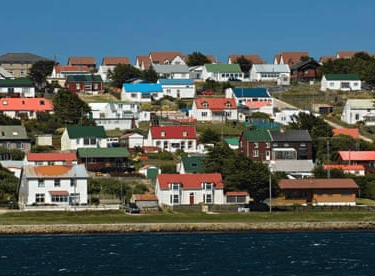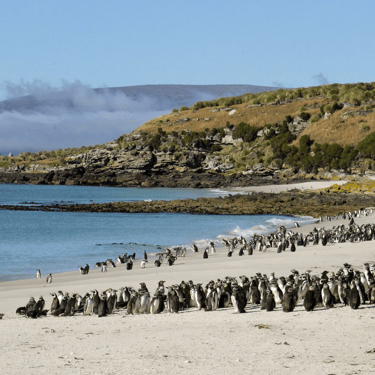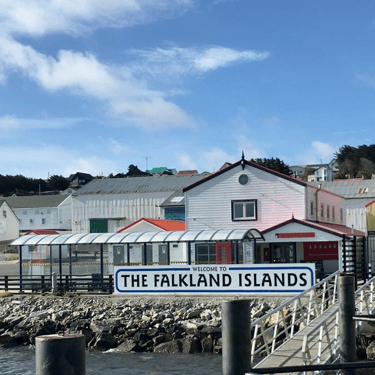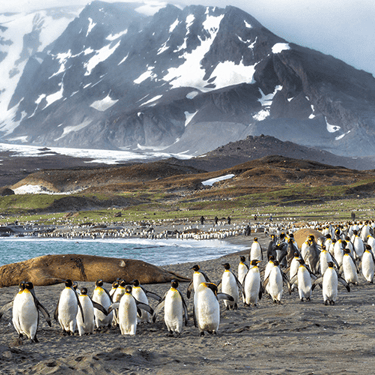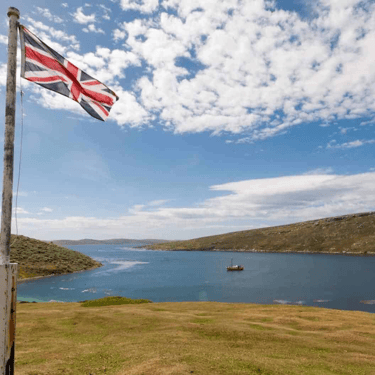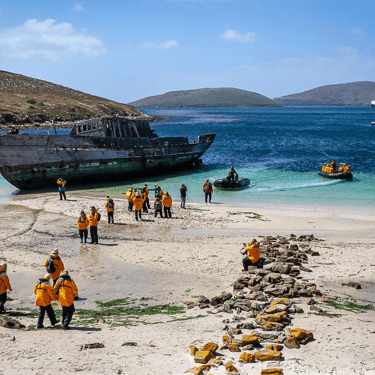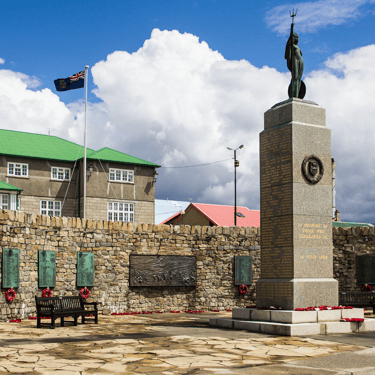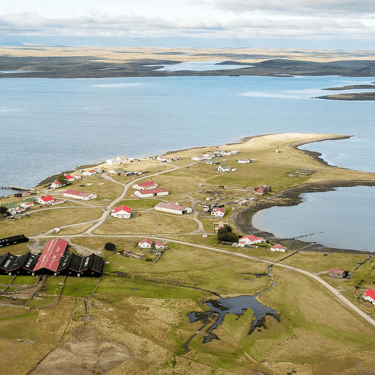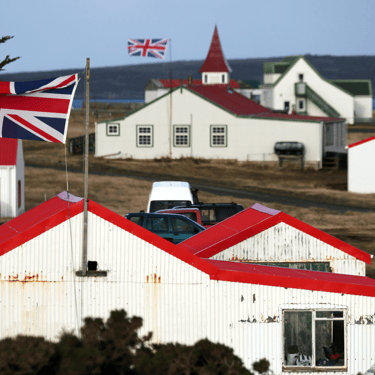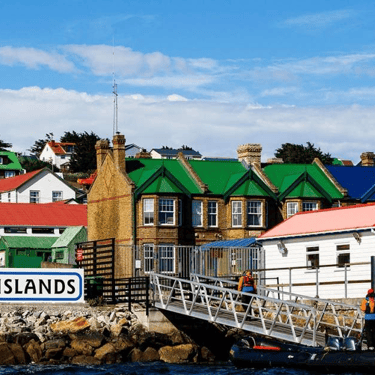
Falkland Islands
General information
The Falkland Islands are an archipelago of around 700 islands in the South Atlantic, the largest being East Falkland and West Falkland. They are situated about 770km (480 miles) north-east of Cape Horn and 480km (300 miles) from the nearest point on the South American mainland.
The Islands have a total land area of 12,173 sq km(4,700 sq miles) – about the size of Northern Ireland – and a permanent population of 2,841 (2012 census).
The capital is Stanley, which is the only town on the Islands, though it qualifies as a city by virtue of its cathedral. Elsewhere in Camp (the local term derived from Spanish for countryside (campo), there are a number of smaller settlements. The majority of the population of the Falkland Islands are British by birth or descent and many can trace their family origins in the Islands back to the early nineteenth century.
There are Anglican, Roman Catholic and non-conformist churches on the Falklands. There are over 250 species of plant in the Falkland Islands, of which 164 are recorded as native – including the Islands’ national flower, the Pale Maiden. The Islands are also noted for their abundant range of wildlife, particularly the Rockhopper, Magellanic, Gentoo, King and Marconi penguins.
Governance
Navigators of several countries have been credited with first sighting the Falklands but the earliest sighting that has been conclusively authenticated was by the Dutch sailor Sebald van Weert in 1600.
The first known landing was made in 1690 by a British naval captain, John Strong. He named the Islands after Viscount Falkland, First Lord of the Admiralty at the time. A British expedition reached West Falkland in 1765, and anchored in a harbour which it named Port Egmont.
It took formal possession of it and of ‘all the neighbouring islands’ for King George III. The following year, another British expedition established a settlement of about 100 people at Port Egmont. This settlement was withdrawn on economic grounds in 1774, but British sovereignty was never relinquished or abandoned.
There was no indigenous or settled population of the Islands before 1833, when British administration of the Islands was resumed and this has continued until the present day. The Falklands were invaded and illegally occupied by Argentine military forces on 2 April 1982.
A British task force was dispatched immediately and, following a conflict in which over 900 British and Argentine lives were lost, the Argentine forces surrendered on 14 June 1982.
Argentina continues to assert a claim to sovereignty over the Falkland Islands. The United Kingdom has no doubt about its sovereignty over the Islands.
The principle of self-determination, enshrined in the UN Charter, underlies their position.
There can be no negotiation on the sovereignty of the Islands unless and until the Islanders so wish. The Islanders regularly make it clear that they wish to remain British.
Economy
Since 1982 the economy of the Islands has grown rapidly. Initially this was as a result of UK development aid, but by 1998 the Islands were self-sufficient in all areas except defence. The Falkland Islands Government’s stated aim is to ensure a diverse and sustainable economy for the future. The latest Islands Plan (2010 – 2015) is available at their website: http://www.falklands.gov.fk/.
It outlines their vision for improved financial management, quality of life and communications while ensuring a sustainable economy. The role of tourism in the Islands’ economy is also increasing.
Tourist numbers continue to grow, with many attracted by the diverse wildlife. Besides the tourists who fly in to stay on the Islands, the number of cruise ship passengers making day trips to Stanley and the surrounding countryside has grown significantly.
Agriculture was the chief industry for most of the last century and remains an important part of the Islands’ economy and culture. Though its contribution to GDP in recent years has been lower than the fisheries sector, it remains one of the largest sectors for employment outside of the public sector.
The Government has recently encouraged the modernisation of this sector, for example setting up a modern abattoir designed to meet EU standards and strongly supporting organic farming. Offshore oil exploration is underway in the Northern and Southern Basins of the Islands.
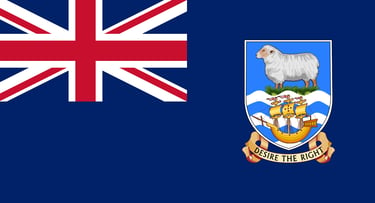

Location

Falkland Islands – wildlife and heritage
Falkland Islands flag
Key facts
> Currency - Falkland Island Pound
> Population - 3,398
> Capital - Stanley
> Government Website - www.falklands.gov.uk
